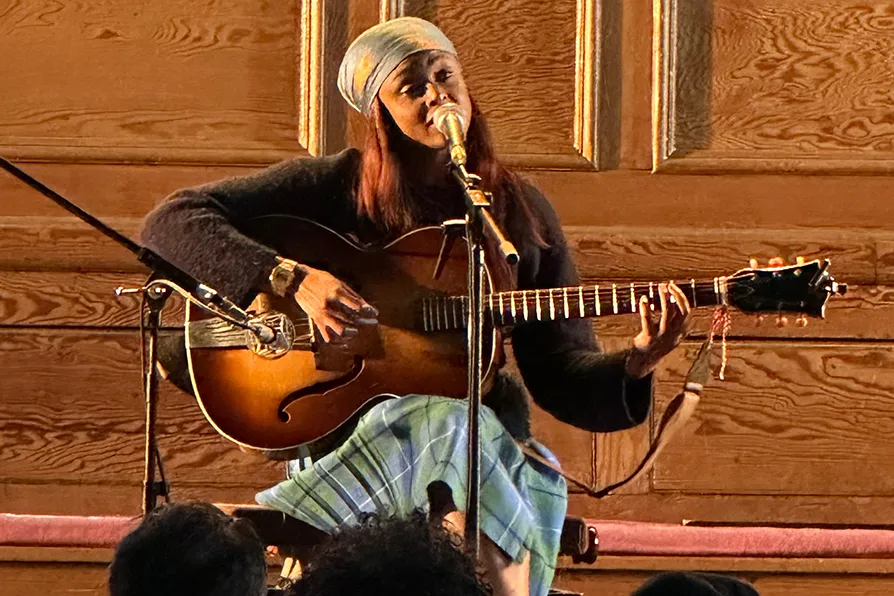JOHN GREEN, MARIA DUARTE and ANGUS REID review Fukushima: A Nuclear Nightmare, Man on the Run, If I Had Legs I’d Kick You, and Cold Storage
STEVE JOHNSON relishes a celebration of the commonality of folk music and its links with the struggles of working people the world over

 CAPTIVATING: Marie Bashiru at Black British Folk Takeover [Pic: Sammie Squire]
CAPTIVATING: Marie Bashiru at Black British Folk Takeover [Pic: Sammie Squire]
Black British Folk Takeover
Cecil Sharp House
★★★★★
Despite folk music’s association with protest there is a perception that its performers and audiences are overwhelmingly white. However folk music is rooted in diverse working-class communities and this one-day festival in the home of the English Folk Dance and Song Society was a long overdue celebration of the African diaspora’s relationship with British folk music.
Curated by Angeline Morrison, whose recent album Sorrow Songs tells stories based on the black British experience, the day was an inspiring experience showcasing a range of talented black folk artists.
The opening set consisted of Morrison and British Guyanian singer Mataio Austin Dean performing a series of songs from the 18th century which acknowledge the presence of black people in Britain and, while some of the original lyrics may not be acceptable now, they do also celebrate instances of love and friendship between black and white working-class people.
There then followed a captivating performance by British Burundi singer and lyre player Mucu singing a set of centuries old traditional songs in Middle and Old English. With some change of tempo but common ground in celebrating community traditions we were then treated to a series of folk songs from Haiti by Germa Adam.
There were further performances throughout the afternoon from Bethany Weimers, Marie Bashiru and Border Widow offering a combination of diverse contemporary and traditional music. But the final two acts in the evening brought together the different themes of the festival and its links with folk music tradition. Cohen Braithwaite-Kilcoyne, an always engaging performer, has recently explored the way British folk songs have travelled over to the Caribbean and adapted accordingly in his album Play Up The Music. His set did include songs from that album but recognising his diverse musical family influences he ended with a rendition of Jimmy Cliff’s, You Can Get It If You Really Want. As a genre originating from the shanty towns reggae can also be considered folk music of the Caribbean.
Finally, we had a combination of song and folklore by duo Calliope but in keeping with the radical political traditions of folk music this was interspersed with a recording of a speech by recently departed black liberation activist Assata Shakur.
A day truly celebrating the commonality of folk music and its links with the struggles of working people the world over.

New releases from Ninebarrow, Amit Dattani, and Lonan

New releases from Steve Tilston, FolkLaw, and Patch and the Giant

ANGUS REID recommends a visit to an outstanding gathering of national and international folk musicians in the northern archipelago










